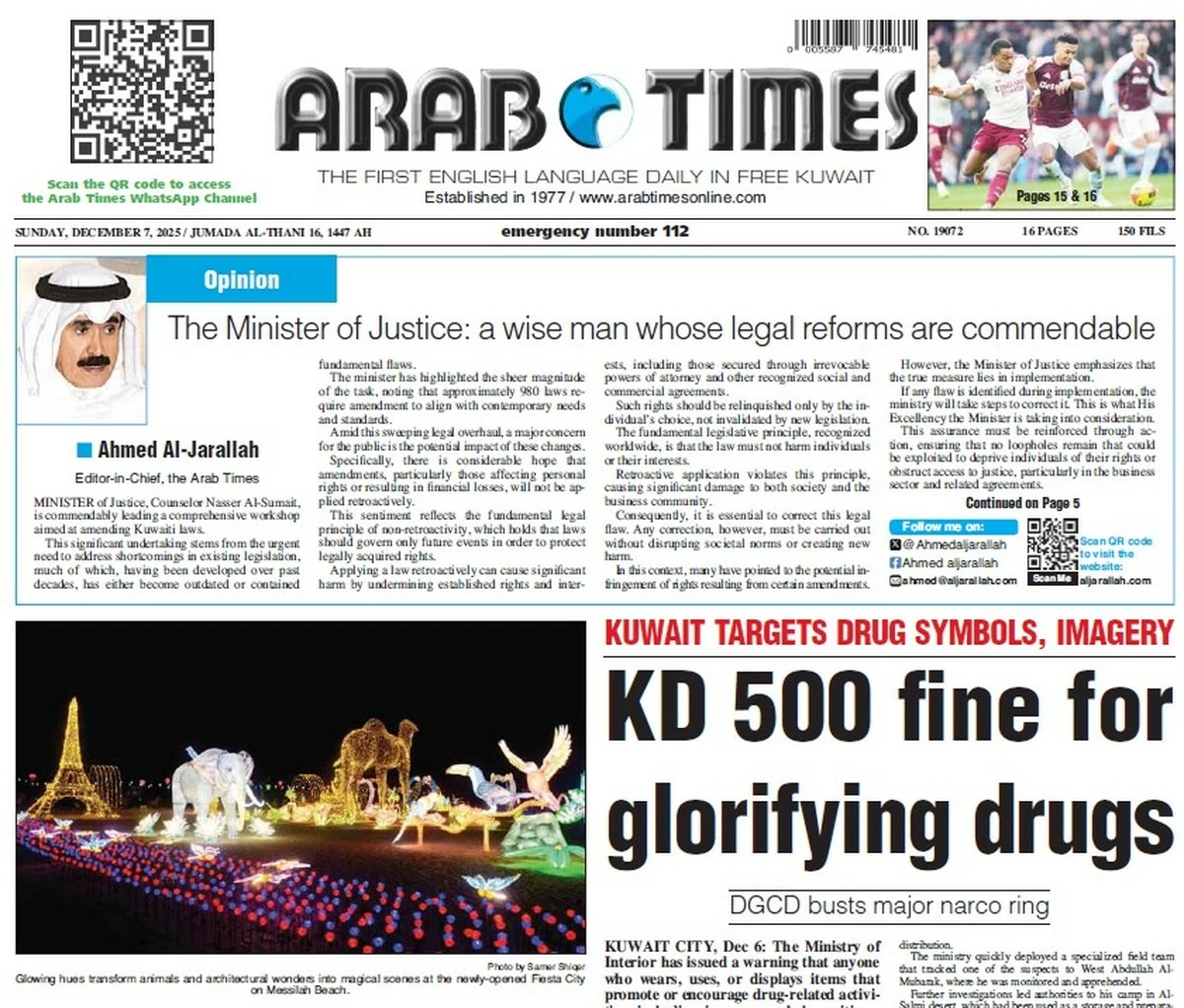12/11/2025
12/11/2025
Once the decision is made, the path becomes evident. This is the reality about the opening of visas, which greatly benefited the nation. We witnessed the advantages for Kuwait during the most recent Gulf Cup tournament. Kuwait needed this long ago — even before the Gulf began opening up to the world — when it was a thriving hub for culture, arts, tourism and family entertainment. Unfortunately, this progress was curtailed by the attitude of certain parliamentary members.
They sought to tightly control public life, pressuring authorities to close the country, acting as if it were an exclusive paradise meant only for those they approved. The economic fallout from this was considerable. In contrast, many nations benefit from millions of immigrants who work freely and boost their economies. Consider Germany, for instance, which has approximately eight million Turkish and two million Syrian immigrants, all of whom contribute freely to the GDP. There have been no calls to restrict their movement or employment. This open approach is mirrored in countries like Australia, Canada, the United Kingdom, and France.
Syrian refugees who went to countries like Egypt—which received nearly two million Syrians during the Syrian crisis—did not strain the State or the local population. Instead, many of them launched successful businesses. These ventures created thousands of jobs and significantly contributed to the GDP of Egypt. There were no calls for their expulsion or deportation. Conversely, the government granted citizenship to those who either purchased property valued at $300,000 or deposited $500,000. It was not argued that Egypt’s 110 million population was inadequate for providing public services. Even some Gulf countries have investment-friendly programs. In Saudi Arabia, an investor can obtain a premium residency by investing 700,000 riyals, whereas in the United Arab Emirates (UAE), an investment of around $500,000 in real estate grants a 10-year golden residency.



